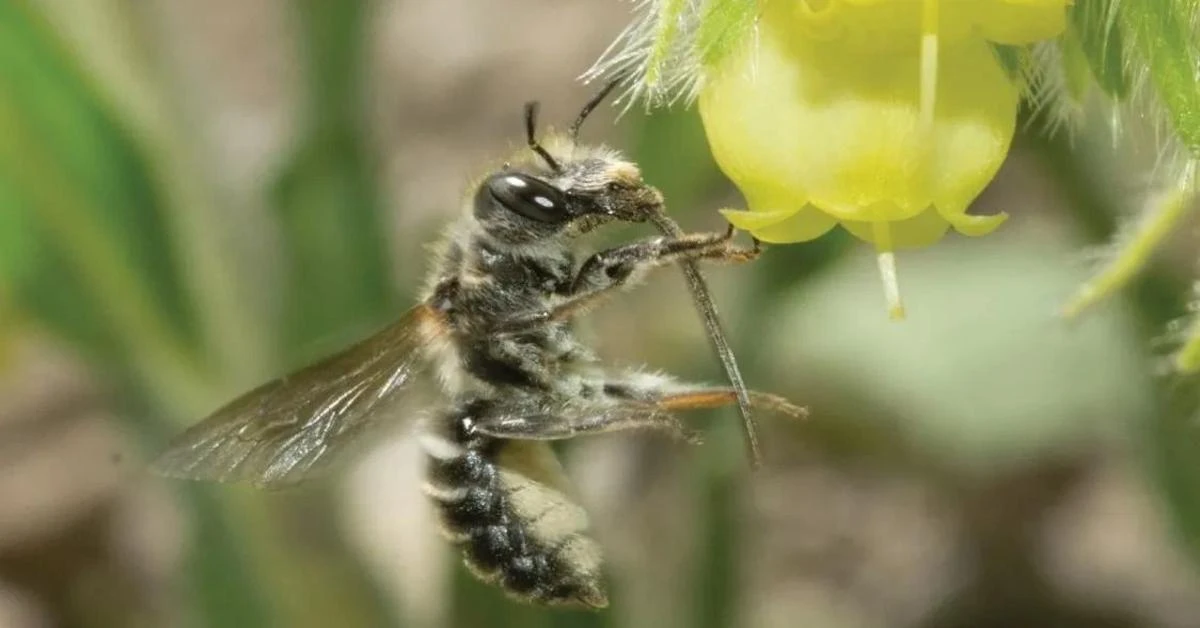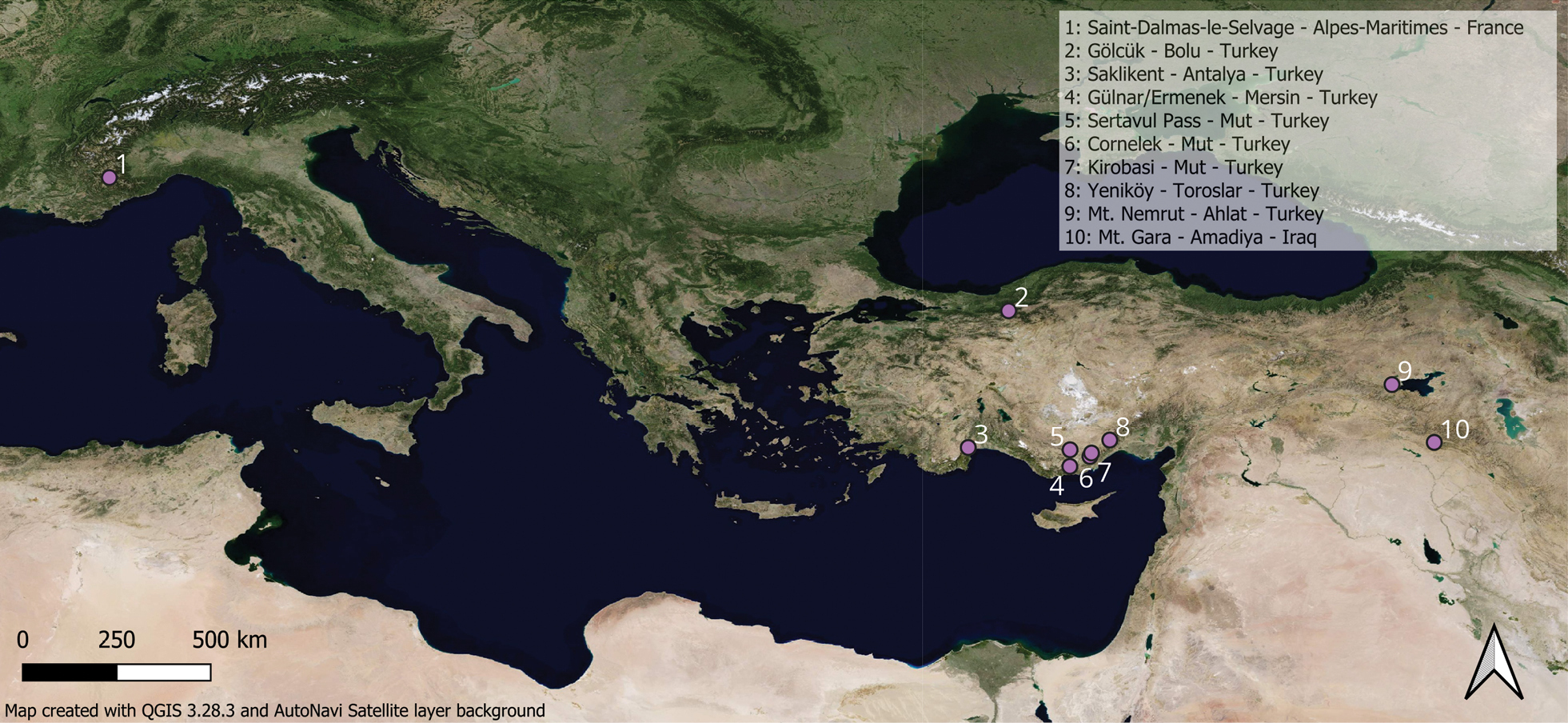Rare bee species connects French Alps to Türkiye, Iraq

The recent discovery of a rare bee species reveals surprising connections between the French Alps and remote regions in Türkiye and Iraq
A group of European scientists has made an intriguing discovery, a previously unknown species of osmiine bee with an uncommon geographical distribution. Named Hoplitis onosmaevae, this bee species is currently confined to Mercantour National Park in the French Alps, as well as various mountainous areas in Türkiye and Northern Iraq. The vast separation of over 2,000 kilometers (1,242.74 miles) between these regions presents a notable biogeographical puzzle.

Highlighted in a paper published in the open-access journal Alpine Entomology, this newfound bee species showcases distinctive ecological traits, particularly its nesting habits in deceased wood. It’s believed to exclusively gather pollen from Onosma species, possessing a lengthy proboscis likely evolved to access nectar from the elongated flowers of this genus.
“The consideration of the few known populations of this species in France is very important in the conservation field,” says lead author Matthieu Aubert, freelance entomologist and member of the Observatoire des Abeilles association. “This study highlights the incredible diversity of wild bees and that we still have a lot to learn from our environment, even in western Europe.”

Scientists stress the importance of developing comprehensive conservation strategies in the southwestern Alps to safeguard the existence of Hoplitis onosmaevae. Given its specialized ecological niche and susceptibility to habitat alterations, proactive measures are essential to ensure its survival.
Source: Newsroom



